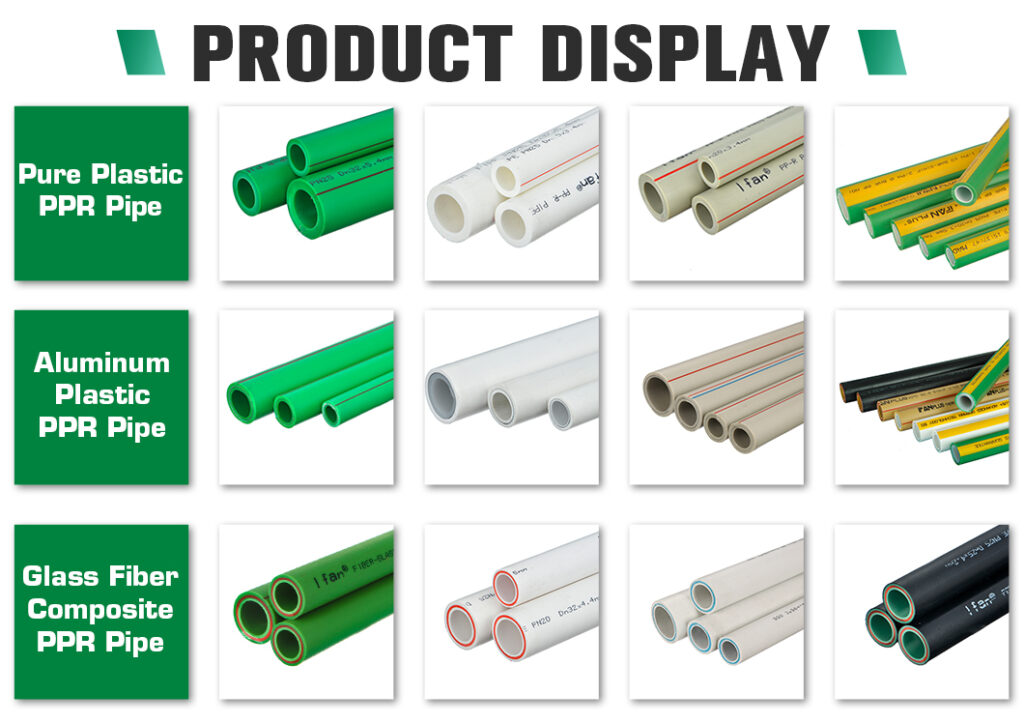Introduction
Polypropylene Random Copolymer (PPR) pipes have gained significant popularity in the plumbing industry for good reasons. These pipes offer a range of advantages that make them an ideal choice for various applications. In this article, we will explore the key advantages of PPR pipes in the plumbing industry.IFAN factory 30+ years manufacture experience support color/size customization support free sample.Welcome to consult for catalog and free samples.This is our FacebookWebsite: www.facebook.com.
1. Corrosion Resistance
One of the standout features of PPR pipes is their excellent resistance to corrosion. Unlike metal pipes, PPR pipes do not rust or corrode, ensuring the water quality remains high over their lifespan. This feature is especially valuable in areas with aggressive water quality.
2. High-Temperature Resistance
PPR pipes are capable of withstanding high-temperature water, making them suitable for hot water distribution systems. Their resistance to temperature extremes ensures that they won’t warp or weaken, even when transporting hot fluids.
3. Smooth Inner Surface
PPR pipes have a smooth inner surface that minimizes water friction. This reduces energy consumption and helps maintain strong water pressure throughout the system. As a result, PPR pipes are more energy-efficient than some other pipe materials.
4. Easy Installation
PPR pipes are lightweight and easy to install, making them a preferred choice for both DIY enthusiasts and professional plumbers. The pipes can be easily cut and joined using heat fusion, eliminating the need for complex and time-consuming jointing methods.

5. Longevity
PPR pipes have a long lifespan, often exceeding 50 years when used within their recommended temperature and pressure limits. This means fewer replacements and maintenance, reducing the overall cost of plumbing systems.
6. Eco-Friendly
PPR pipes are environmentally friendly. They are 100% recyclable, and their production has a lower carbon footprint compared to some other materials. Choosing PPR pipes can contribute to sustainable building practices.
7. Leak-Proof Joints
The heat fusion jointing method used for PPR pipes creates leak-proof connections. This eliminates the risk of water leakage and water damage, especially in critical areas like residential bathrooms.
8. Versatility
PPR pipes are versatile and suitable for a wide range of applications. They can be used for both cold and hot water supply, heating systems, and even in industrial processes.
9. Low Maintenance
PPR pipes require minimal maintenance. They are not prone to scaling or sediment buildup, reducing the need for regular cleaning or maintenance. This results in cost savings and less downtime.
Conclusion
PPR pipes have rightfully earned their place as a popular choice in the plumbing industry due to their numerous advantages. Their resistance to corrosion, high-temperature tolerance, smooth inner surface, ease of installation, and eco-friendliness make them an excellent option for modern plumbing systems. Whether in residential, commercial, or industrial settings, PPR pipes are a reliable and efficient choice that can contribute to long-lasting and sustainable plumbing solutions.

